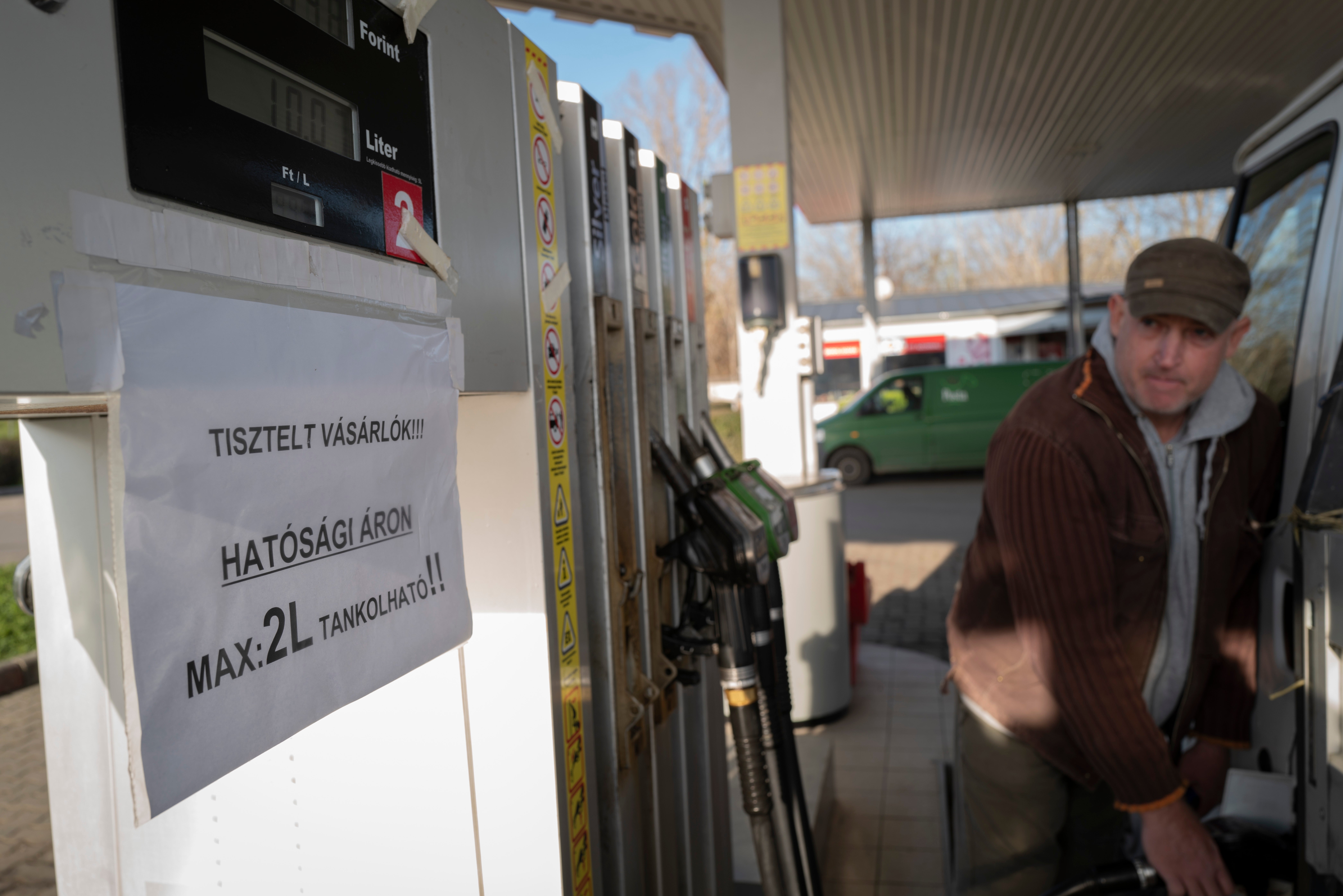Hungarian government scraps year-old ceiling on fuel prices
Hungary’s government is cancelling a state-imposed cap on fuel prices after a wave of panic-buying by motorists led to fuel shortages and long lines at filling stations across the country

Your support helps us to tell the story
From reproductive rights to climate change to Big Tech, The Independent is on the ground when the story is developing. Whether it's investigating the financials of Elon Musk's pro-Trump PAC or producing our latest documentary, 'The A Word', which shines a light on the American women fighting for reproductive rights, we know how important it is to parse out the facts from the messaging.
At such a critical moment in US history, we need reporters on the ground. Your donation allows us to keep sending journalists to speak to both sides of the story.
The Independent is trusted by Americans across the entire political spectrum. And unlike many other quality news outlets, we choose not to lock Americans out of our reporting and analysis with paywalls. We believe quality journalism should be available to everyone, paid for by those who can afford it.
Your support makes all the difference.Hungary's government cancelled a state-imposed cap on fuel prices late Tuesday after a recent wave of panic-buying among motorists led to fuel shortages and long lines at filling stations across the country.
The prices of gasoline and diesel at fuel pumps will be set according to market rates as of 11 p.m. Tuesday, government minister Gergely Gulyas announced at a news conference.
The move brings an end to more than a year of government-mandated price controls that had strained the ability of the state energy company to keep up with demand.
Gulyas blamed the end of the price cap, which from November 2021 limited fuel prices to 480 forints ($1.22) per liter, on European Union sanctions placed on Russia over its invasion of Ukraine.
But soaring fuel consumption — up some 25% in Hungary since last year — as well as production difficulties at a Hungarian oil refinery have led to state energy company MOL struggling to supply filling stations with adequate quantities of price-capped fuel.
“The government maintained the price cap as long as it could," Gulyas said. The price cap had been due to expire Dec. 31.
Earlier on Tuesday, MOL issued a statement saying it had reached the end of its logistical capacities to keep up with the demand as consumers rushed gas stations amid rumors of pumps running dry.
MOL chief Zsolt Hernadi said at the news conference that Hungary had been hit with long lines at gas stations not seen since shortages in Hungary's Soviet-dominated socialist period in the 1970s.
Gulyas acknowledged that the lifting of the price cap on fuel is likely to increase inflation in Hungary — already the third-highest in the EU at 21.1%.
The government has not yet decided on whether a price cap on basic foodstuffs would continue after the new year, he said, a measure that has caused similar shortages of staples like sugar, flour and other products on store shelves.
___
Boldizsar Gyori contributed to this report.